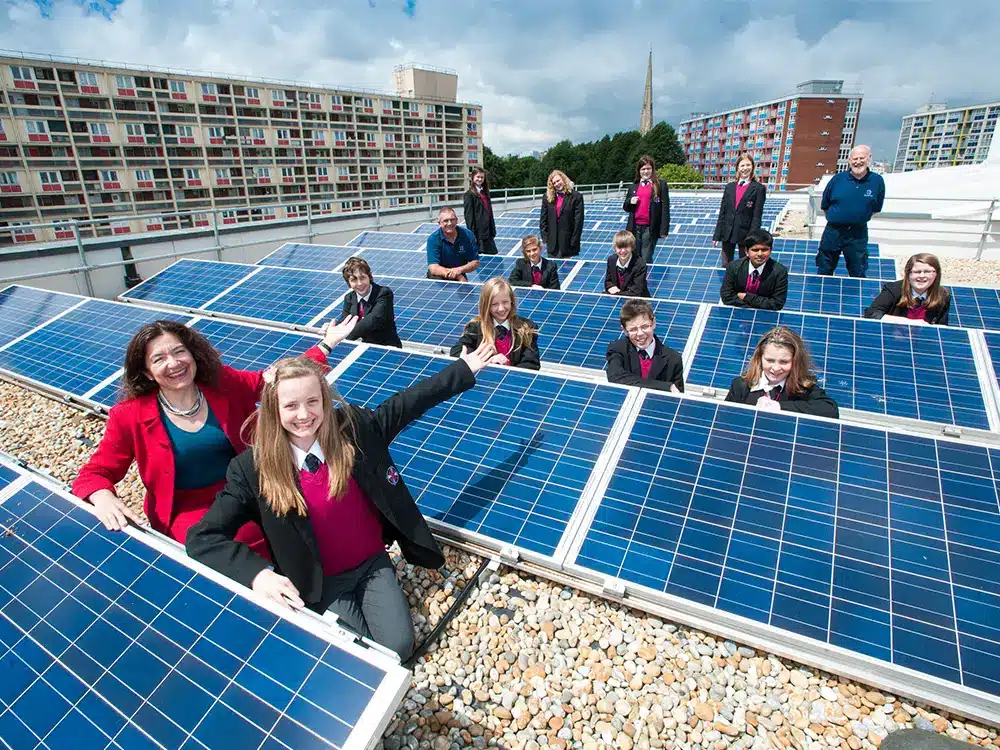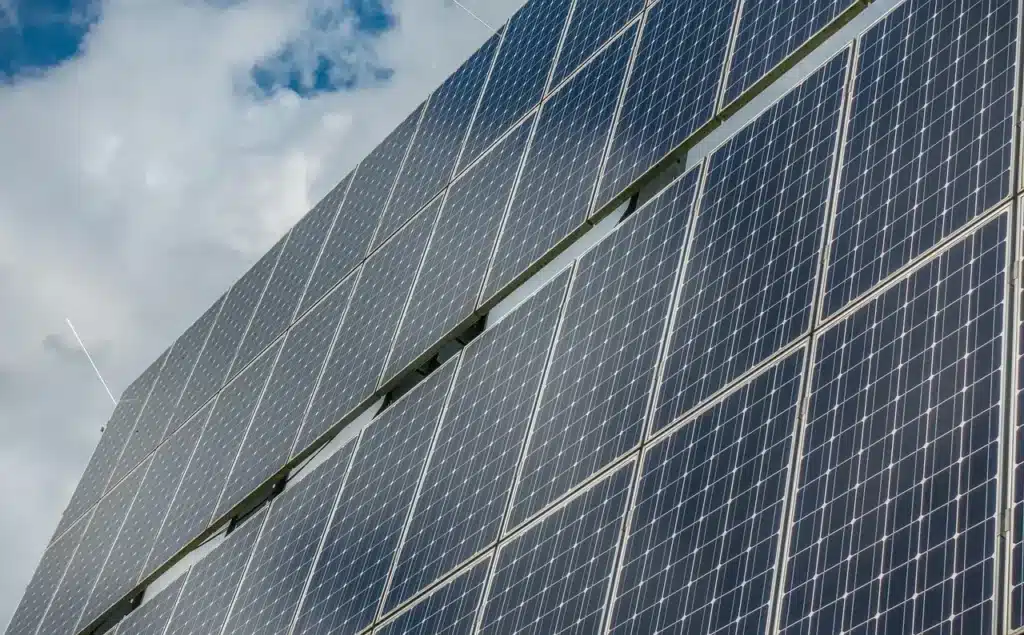Solar for Schools and Clinics: Triumphs in Rural Ghana
Discover how Solar for Schools and Clinics: Triumphs in Rural Ghana is transforming education and healthcare with clean, reliable energy. Learn about the impact of solar power in empowering rural communities. Imagine a place where schools and clinics struggle to operate due to a lack of reliable electricity. This is a reality in many rural areas of Ghana.
But there’s a ray of hope—solar energy. Have you ever considered how Solar for Schools and Clinics is transforming lives and empowering communities? You’ll discover inspiring success stories of how Rural Solar Projects are lighting up schools and clinics across rural Ghana, making education and healthcare more accessible.
You’ll see how these changes not only improve daily life but also offer a sustainable future for the next generation. Keep reading to learn how Solar for Clinics and Solar for Schools are creating real impact and how you can be part of this amazing transformation.

Benefits Of Solar Energy
Solar energy is transforming lives in rural Ghana. Solar for Schools and Clinics is transforming lives in rural Ghana. Schools and clinics benefit significantly. Rural Solar Projects offer reliable electricity, fostering development and improving quality of life. Below, we explore key benefits of Solar for Schools and Clinics for these communities.
Cost Efficiency
Solar for Schools reduces electricity costs for schools and clinics. Initial setup may require investment, but long-term savings are substantial. Solar panels harness free sunlight, cutting monthly energy bills. This allows funds to be redirected to crucial resources. Books, medical supplies, and infrastructure improvements benefit.
Environmental Impact
Rural Solar Projects are clean and sustainable. They reduce reliance on fossil fuels. This decrease in pollution contributes to a healthier environment. Solar for Clinics becomes a model of green energy use. Students and patients learn about sustainable practices. They witness the benefits firsthand, fostering environmental awareness.
Challenges In Rural Ghana
Rural Ghana faces numerous challenges in adopting solar energy for schools and clinics. These obstacles often hinder progress and development in these areas. Understanding these challenges is crucial in finding effective solutions.
Infrastructure Limitations
Many rural areas in Ghana lack proper infrastructure. Roads are poorly maintained. Transporting Solar for Schools equipment becomes difficult. Communication systems are often unreliable. This makes coordination challenging. Solar for Clinics sometimes operates in temporary buildings. These structures may not support solar installations.
Funding Constraints
Funding is a significant barrier to Triumphs in Rural Ghana. Many communities have limited financial resources. International aid can be unpredictable. Local fundraising efforts face many obstacles. High initial costs of Rural Solar Projects deter potential investors.
Success Stories
Solar for Schools and Clinics is transforming schools and clinics in rural Ghana. These places are seeing positive changes thanks to Rural Solar Projects. Below are some success stories that highlight the benefits.
Improved Education Outcomes
Solar for Schools provides reliable electricity for schools. Students now study without frequent power cuts. Teachers use computers and projectors for lessons. This makes learning more engaging. Exam pass rates are improving. Children stay in school longer, eager to learn.
Enhanced Healthcare Services
Solar for Clinics benefits greatly from solar power. Electricity is constant, allowing for better medical services. Refrigeration of vaccines is now possible. This ensures medicines stay effective. Doctors use modern equipment during treatments. Patient care has improved significantly. Emergency services are more responsive.
Community Engagement
Community engagement is crucial in deploying Solar for Schools and Clinics in rural Ghana. Solar for Schools and Solar for Clinics benefit greatly when communities participate. Locals become invested in maintaining these Rural Solar Projects. This involvement ensures long-term success and sustainability. Let’s explore how community engagement works.
Local Training Programs
Training programs empower residents with essential skills. Locals learn to operate and maintain solar systems. These programs create job opportunities and enhance technical knowledge. Trained community members handle basic repairs and troubleshooting. They ensure the solar systems function optimally.
Training sessions often take place in schools or community centers. Experienced professionals lead these sessions. They provide hands-on experience and practical knowledge. The knowledge gained builds confidence among community members.
Stakeholder Involvement
Stakeholder involvement is key to Triumphs in Rural Ghana. Local leaders, teachers, and healthcare workers play vital roles. They help identify the community’s needs and priorities. Their input shapes the project’s direction. This involvement fosters a sense of ownership and responsibility.
Meetings and workshops bring stakeholders together. They discuss goals, challenges, and solutions. This collaborative approach strengthens the community’s commitment. Projects are more likely to succeed with active stakeholder participation.
Technological Innovations
In Triumphs in Rural Ghana, Solar for Schools and Clinics have brought hope to communities. Technological innovations have transformed these areas. They now enjoy reliable electricity and better facilities.

Advanced Solar Systems
Modern Rural Solar Projects capture sunlight efficiently. They store energy for use on cloudy days. This guarantees a continuous power supply. In remote areas, this is crucial for daily operations.
Advanced systems also include solar batteries. These batteries keep electricity flowing during the night. Solar for Clinics can function without interruption.
Integration With Local Needs
Solar for Schools matches specific community needs. In schools, solar lights help students study after sunset. Solar for Clinics benefits from powered medical equipment.
Local resources and conditions are considered in system designs. This ensures Solar for Schools and Clinics are effective and sustainable. Communities participate in planning and maintenance. Their input helps meet their unique needs.
Future Prospects
Solar energy is transforming education and healthcare in rural Ghana. Schools and clinics now enjoy reliable electricity. These success stories highlight brighter futures and improved community well-being.
The future prospects for solar energy in schools and clinics across rural Ghana are promising and full of potential. As success stories continue to emerge, more communities are seeing the tangible benefits of harnessing solar power for essential services. Your involvement in this initiative can be pivotal in driving further advancements. Imagine the positive impact on education and healthcare if more institutions could rely on renewable energy sources.
Expansion Plans
Efforts are underway to extend solar energy projects to more rural areas in Ghana. Organizations are working closely with local officials to identify schools and clinics that would benefit most. You might be curious about how these plans are executed.
It’s about creating sustainable partnerships that empower communities with resources and knowledge. As more institutions embrace solar power, the ripple effect can lead to improved educational outcomes and healthcare services. What role can you play in supporting these expansion efforts?
Potential Obstacles
Scaling solar projects in rural areas isn’t without challenges. Infrastructure limitations often pose hurdles in delivering a consistent energy supply. You may wonder how these obstacles are overcome. It’s through innovative solutions and community engagement. Local involvement ensures that projects are tailored to specific needs, enhancing effectiveness.
Despite these challenges, the enthusiasm for solar energy remains high. How can your insights contribute to overcoming these barriers, ensuring sustainable energy solutions for all?
The journey towards widespread solar energy adoption in rural Ghana is ongoing. Your engagement can be the catalyst that drives further success stories in schools and clinics.
Frequently Asked Questions
How Are Solar Panels Benefiting Rural Schools In Ghana?
Solar panels provide reliable electricity to rural schools, enhancing learning conditions. They power lighting and essential equipment, enabling extended study hours. This sustainable energy source reduces dependency on unreliable grid power, fostering a better educational environment and promoting technological literacy among students.
Are the systems in “Solar for Schools and Clinics: Triumphs in Rural Ghana” maintained locally?
Many projects include local technician training, ensuring long-term maintenance, job creation, and community ownership of the solar systems.
Can Solar Energy Improve Healthcare In Rural Clinics?
Yes, solar energy significantly improves healthcare delivery in rural clinics. It ensures consistent power for medical equipment and refrigeration of vaccines. With reliable electricity, clinics can offer better services, handle emergencies efficiently, and maintain essential health records, ultimately enhancing patient care and community health outcomes.
What Challenges Do Rural Solar Projects Face In Ghana?
Rural solar projects face challenges like initial installation costs and maintenance issues. Limited technical expertise can affect system efficiency. Additionally, logistical hurdles in remote areas complicate material delivery. Despite these challenges, community involvement support plays a crucial role in overcoming obstacles and ensuring project success.
How Does Solar Energy Promote Sustainable Development?
Solar energy promotes sustainable development by reducing reliance on fossil fuels, lowering carbon emissions, and protecting the environment. It provides consistent electricity to remote areas, supporting education and healthcare. This renewable energy source fosters economic growth, empowers communities, and encourages investment in sustainable practices.
Conclusion
Solar energy brings hope to rural Ghana. Schools and clinics benefit greatly. Light and power enhance learning and healthcare. Communities grow stronger with electricity. Teachers can use computers. Doctors can run equipment smoothly. The impact is huge and positive. Sustainable energy leads to lasting change.
Families see improvements in daily life. The sun’s power transforms villages. More projects will follow these success stories. Ghana’s future looks brighter with solar solutions. Together, we build a better tomorrow.
